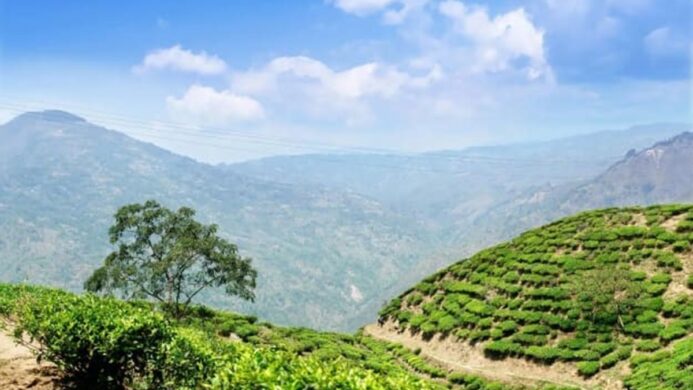Nestled on the southern coast of Central Java, Cilacap is a region blessed with rich biodiversity, captivating coastlines, and a deep-rooted cultural heritage. Once known primarily as a transit hub or industrial zone, Cilacap is now gaining recognition for a different reason—its growing dedication to sustainable tourism. This transformation is not just about attracting more visitors but about doing so in a way that preserves the region’s natural and cultural assets for future generations.
In a world where mass tourism often leaves a heavy environmental footprint, Cilacap’s shift toward responsible travel practices reflects a broader global movement. From restoring mangrove ecosystems and promoting eco-friendly coastal tours to supporting community-based initiatives that empower local artisans and farmers, the region is actively rethinking how tourism can serve both people and the planet.
This article explores the steps Cilacap is taking to embrace sustainability, the challenges it faces, and how its unique approach can inspire other regions seeking a more balanced and ethical tourism model.
Understanding Sustainable Tourism
Sustainable tourism is more than just a travel trend—it’s a long-term approach to tourism development that considers the environmental, social, and economic impact of travel. At its core, sustainable tourism seeks to minimize negative effects on local ecosystems and communities while maximizing the benefits for both residents and visitors. This means protecting natural resources, preserving cultural heritage, and ensuring that tourism contributes to the local economy in a fair and inclusive way.
In destinations like Cilacap, sustainable tourism practices are essential to preserving fragile ecosystems such as mangrove forests and coral reefs, which are both valuable to the environment and attractive to eco-conscious travelers. Community-based tourism also plays a key role, offering visitors an authentic experience while ensuring locals remain central to decision-making and economic benefits.

natural beauty
In today’s digital world, even tech and entertainment platforms can support sustainability by promoting awareness and responsible behavior. For example, while browsing travel guides or using entertainment platforms like the 1xbet app, users can be encouraged to explore eco-tourism destinations, learn about conservation efforts, and support ethical travel choices.
By understanding and embracing the principles of sustainable tourism, travelers and communities alike can contribute to a healthier planet and a more equitable global tourism industry.
Cilacap’s Natural and Cultural Assets
Cilacap boasts a diverse range of natural landscapes and cultural treasures that make it a compelling destination for sustainable tourism. The region is home to stunning coastal areas, including Widarapayung Beach and Teluk Penyu, which attract visitors seeking relaxation and adventure. Beyond the beaches, Cilacap is known for its mangrove forests, which play a crucial role in protecting coastal ecosystems and supporting biodiversity. These mangroves are now part of eco-tourism initiatives that educate travelers about conservation and climate resilience.
On the cultural front, Cilacap offers a rich tapestry of traditions, from local culinary delights like “mendoan” to traditional arts and crafts rooted in Javanese heritage. Historical sites such as Benteng Pendem (the Dutch Fort) add depth to the visitor experience, connecting tourists to the region’s colonial past. Local festivals and ceremonies offer an intimate glimpse into the daily life and spiritual practices of Cilacap’s communities.
As more travelers explore off-the-beaten-path destinations, tools like the 1xbet apk help them stay connected to entertainment and services on the go—even while immersed in nature. Whether you’re enjoying a quiet evening in a beachside homestay or learning about mangrove reforestation, having access to multifunctional apps ensures a seamless experience while respecting the natural and cultural surroundings.
Sustainable Initiatives in Cilacap
Cilacap is actively integrating sustainability into its tourism development, focusing on environmental conservation, community empowerment, and cultural preservation. Key initiatives include:
- Eco-Friendly Fishing Practices
Cilacap’s fishing industry is adopting sustainable practices to protect marine ecosystems. Fishermen utilize selective fishing gear to minimize bycatch, adhere to catch limits, and engage in coral reef conservation efforts.
- Blue Economy in Marine Tourism
At Teluk Penyu Beach, the Blue Economy model is being implemented to promote sustainable marine tourism. This approach emphasizes nature efficiency, social inclusivity, and multiple revenue streams, aligning with several Sustainable Development Goals, including climate action and marine ecosystem preservation.
- Smart Tourism Strategies
The development of Singkil Beach in Karang Pakis Nusawungu is incorporating smart tourism strategies. By leveraging information and communication technology, the area aims to enhance tourist experiences and improve destination management, contributing to sustainable tourism growth.
- Sustainable Fishing Port
The Cilacap Ocean Fishing Port is adopting the ecoport concept, focusing on environmentally friendly port management. Strategies include improving waste management, infrastructure maintenance, and fostering partnerships to support sustainable fisheries.
- Community-Based Tourism
In Datar Village, community-based tourism initiatives are promoting local culture and traditions. Attractions like Curug Cimandaway waterfall and Mount Ketra offer visitors authentic experiences while supporting local livelihoods.


